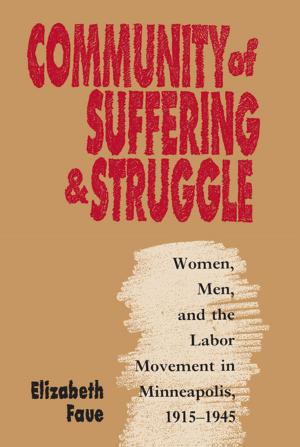Before Jim Crow
The Politics of Race in Postemancipation Virginia
Nonfiction, Social & Cultural Studies, Current Events, Political Science, Government, Local Government, History, Americas, United States, Civil War Period (1850-1877)| Author: | Jane Dailey | ISBN: | 9780807899182 |
| Publisher: | The University of North Carolina Press | Publication: | November 30, 2009 |
| Imprint: | The University of North Carolina Press | Language: | English |
| Author: | Jane Dailey |
| ISBN: | 9780807899182 |
| Publisher: | The University of North Carolina Press |
| Publication: | November 30, 2009 |
| Imprint: | The University of North Carolina Press |
| Language: | English |
Long before the Montgomery bus boycott ushered in the modern civil rights movement, black and white southerners struggled to forge interracial democracy in America. This innovative book examines the most successful interracial coalition in the nineteenth-century South, Virginia's Readjuster Party, and uncovers a surprising degree of fluidity in postemancipation southern politics.
Melding social, cultural, and political history, Jane Dailey chronicles the Readjusters' efforts to foster political cooperation across the color line. She demonstrates that the power of racial rhetoric, and the divisiveness of racial politics, derived from the everyday experiences of individual Virginians--from their local encounters on the sidewalk, before the magistrate's bench, in the schoolroom. In the process, she reveals the power of black and white southerners to both create and resist new systems of racial discrimination. The story of the Readjusters shows how hard white southerners had to work to establish racial domination after emancipation, and how passionately black southerners fought each and every infringement of their rights as Americans.
Long before the Montgomery bus boycott ushered in the modern civil rights movement, black and white southerners struggled to forge interracial democracy in America. This innovative book examines the most successful interracial coalition in the nineteenth-century South, Virginia's Readjuster Party, and uncovers a surprising degree of fluidity in postemancipation southern politics.
Melding social, cultural, and political history, Jane Dailey chronicles the Readjusters' efforts to foster political cooperation across the color line. She demonstrates that the power of racial rhetoric, and the divisiveness of racial politics, derived from the everyday experiences of individual Virginians--from their local encounters on the sidewalk, before the magistrate's bench, in the schoolroom. In the process, she reveals the power of black and white southerners to both create and resist new systems of racial discrimination. The story of the Readjusters shows how hard white southerners had to work to establish racial domination after emancipation, and how passionately black southerners fought each and every infringement of their rights as Americans.















